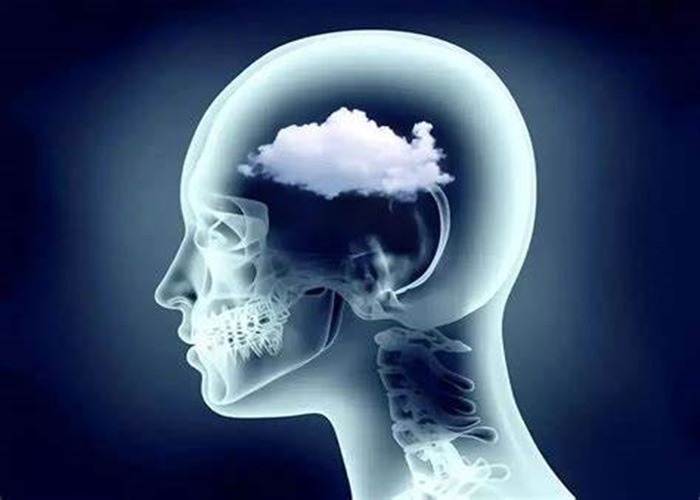Menopause is a natural process that marks the end of a woman’s reproductive years. It is characterized by a variety of symptoms, including hot flashes, night sweats, and mood changes. One of the most common symptoms of menopause is brain fog, which can affect memory, concentration, and overall cognitive function. In this article, we will explore tips and strategies to help manage menopause brain fog.
Understanding Menopause Brain Fog
- Menopause brain fog is a common symptom of menopause.
- It is characterized by difficulty with memory, concentration, and overall cognitive function.
- The exact cause of menopause brain fog is not fully understood, but it is believed to be related to hormonal changes.
Lifestyle Changes to Help Manage Menopause Brain Fog
Regular exercise can help improve cognitive function and reduce stress, which can contribute to menopause brain fog.
A healthy diet rich in fruits, vegetables, and whole grains can also help improve cognitive function.
Getting enough sleep is important for cognitive function, so it is important to establish a regular sleep routine.
Symptoms of Menopausal Brain Fog
- Difficulty with memory, such as forgetting important dates or appointments.
- Difficulty with concentration and focus, such as trouble completing tasks or following conversations.
- Overall cognitive impairment, such as feeling mentally sluggish or foggy.
- Mood changes, such as feeling irritable or anxious.
Causes of Menopausal Brain Fog
- Hormonal changes associated with menopause, including a decrease in estrogen levels, can contribute to menopausal brain fog.
- Sleep disturbances, such as hot flashes or night sweats, can also contribute to menopausal brain fog.
- Stress and anxiety associated with menopause can also contribute to menopausal brain fog.
Diagnosis and Treatment of Menopausal Brain Fog
- A healthcare provider can help diagnose menopausal brain fog through a physical exam and medical history.
- Treatment for menopausal brain fog will depend on the underlying cause. This may include hormone replacement therapy (HRT) to regulate hormonal changes associated with menopause.
- Lifestyle changes, such as stress reduction techniques, improving sleep habits, or dietary changes, may also be recommended.
- In some cases, medication may be prescribed to treat underlying conditions, such as depression or anxiety.
Prevention of Menopausal Brain Fog
- Maintaining a healthy lifestyle, including regular exercise, a balanced diet, and adequate sleep, can help prevent menopausal brain fog.
- Managing stress and anxiety through techniques such as meditation or deep breathing can also help prevent menopausal brain fog.
- Hormone replacement therapy (HRT) may also help prevent menopausal brain fog in some women.
Cognitive Strategies to Help Manage Menopause Brain Fog
- Organization and planning can help manage menopause brain fog. This includes keeping a calendar or planner to help remember important dates and appointments.
- Breaking down complex tasks into smaller, more manageable steps can also help improve cognitive function.
- Mindfulness techniques, such as meditation or deep breathing, can help reduce stress and improve cognitive function.
Hormone Replacement Therapy (HRT)
- Hormone replacement therapy (HRT) may be recommended for women experiencing severe menopause symptoms, including brain fog.
- HRT involves taking estrogen and/or progesterone to help regulate hormonal changes associated with menopause.
- However, HRT is not without risks and should be discussed with a healthcare provider.
Alternative Treatments for Menopause Brain Fog
- Alternative treatments, such as herbal supplements and acupuncture, have been studied for their potential to alleviate menopause symptoms, including brain fog.
- However, more research is needed to confirm their effectiveness and safety.
When to Seek Medical Attention: Understanding Warning Signs
Physical Warning Signs
- Chest pain or pressure, which may indicate a heart attack.
- Difficulty breathing or shortness of breath, which may indicate a respiratory issue or heart problem.
- Severe headache or sudden onset of a headache, which may indicate a stroke or other serious condition.
- Seizures or convulsions, which may indicate epilepsy or another neurological condition.
- Severe abdominal pain or bloody stools, which may indicate a gastrointestinal issue or infection.
Mental and Emotional Warning Signs
- Suicidal thoughts or behavior, which require immediate attention from a mental health professional or emergency services.
- Severe anxiety or panic attacks, which may require medical intervention or mental health treatment.
- Sudden changes in mood or behavior, which may indicate a neurological or mental health issue.
Injury Warning Signs
- Severe injuries, such as bone fractures or head injuries, which require medical attention.
- Burns or deep cuts, which may require medical treatment or stitches.
- Severe allergic reactions, which may require emergency medical attention.
Chronic Condition Warning Signs
- Worsening symptoms of a chronic condition, such as diabetes or asthma, which may require medical attention or a change in treatment.
- New or unusual symptoms that develop in a chronic condition, which may indicate a complication or new issue that requires medical attention.
When to Seek Emergency Medical Attention
- Chest pain or pressure that lasts more than a few minutes.
- Difficulty breathing or shortness of breath that is severe or sudden.
- Seizures or convulsions.
- Severe injuries, such as broken bones or head injuries.
- Severe allergic reactions, such as difficulty breathing or swelling of the throat.
Conclusion
Menopause brain fog is a common symptom of menopause that can affect memory, concentration, and overall cognitive function. Lifestyle changes, cognitive strategies, hormone replacement therapy, and alternative treatments may help manage menopause brain fog. It is important to seek medical attention if menopause brain fog is interfering with daily life or if it is accompanied by other symptoms. With the right support and strategies, women can manage menopause brain fog and improve their overall cognitive function.
Related topics
- Understanding the Last Period Before Menopause
- Menopause: Managing Its Side Effects
- Early Menopause: Signs and Symptoms


